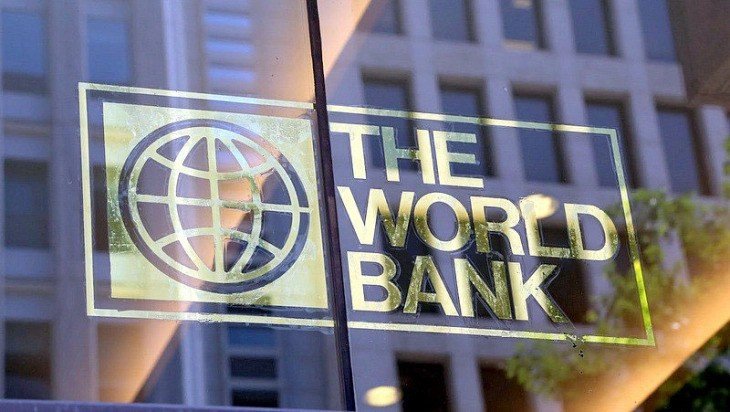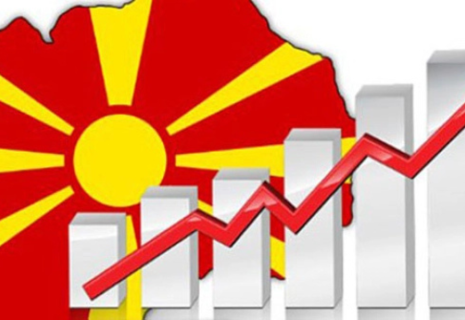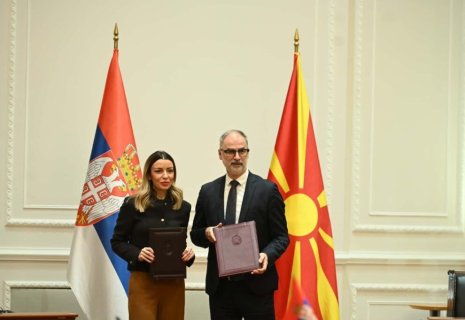
World Bank Boosts North Macedonia’s 2025 Growth Forecast
North Macedonia’s growth is expected to reach 2.6% in 2025, 2.7% in 2026, and 2.8% in 2027, according to the Western Balkans Regular Economic Report released today by the World Bank. Compared to the World Bank’s autumn 2024 projections, the Macedonian GPD forecast for this year has been revised up by 0.1 percentage points, while the forecast for next year has been lowered by 0.3 percentage points, CE Report quotes MIA.
According to the report economic growth in the Western Balkans is projected to slow down modestly in 2025 owing to weaker external demand and economic uncertainty arising from evolving global trade policies which could affect business and consumer confidence.
The World Bank forecasts that the combined economic growth of Albania, Bosnia and Herzegovina, Kosovo, Montenegro, North Macedonia, and Serbia will reach 3.2% in 2025, 0.5 percentage points below previous projections. Growth is anticipated to accelerate to 3.5% in 2026.
Albania’s economic growth forecast for this year has been revised down by 0.3 percentage points to 3.2 percent. Bosnia and Herzegovina and Montenegro also recorded downward revisions of 0.5 percentage points each, with projected growth at 2.7 percent and 3.0 percent, respectively. Kosovo’s projection was lowered by 0.1 percentage points to 3.8 percent, while Serbia’s was cut by 0.7 percentage points, bringing its expected growth to 3.5 percent.
“We are seeing some positive economic trends in the Western Balkans that underscore the region’s resilience and should underpin firm economic growth. Lower inflation and rising wages support consumption, public investments are beginning to pick up,” says Xiaoqing Yu, World Bank Division Director for the Western Balkans.
“On the other hand, we are witnessing increased domestic uncertainty in several economies of the Western Balkans. Slower economic activity in the European Union and heightened global trade uncertainty could also negatively impact the growth outlook in the region,” Yu adds.
Global trade uncertainty is likely to affect the Western Balkans, primarily as a result of slowing economic activity in the euro zone. This slowdown could reduce trade in goods and services, as well as investments and remittances.
The report suggests that during periods of uncertainty, diversifying growth sources and renewing the structural reform agenda are the most effective strategies for maintaining economic resilience. Key measures include eliminating labor market barriers—including those affecting women—enhancing regional economic integration, improving governance standards, and increasing market competition to boost productivity and support long-term growth.
Additionally, for Western Balkans countries, faster implementation of EU accession reforms—such as joining the Single Euro Payments Area (SEPA) and introducing “green lanes” to streamline cross-border trade—could further enhance business confidence, attract investment, and spur job creation, the World Bank says.
The report also emphasizes how rising temperatures and extreme weather events, coupled with the transition to a low-carbon economy, are reshaping sectoral employment patterns in the region, requiring significant workforce adaptation.
According to the World Bank, the six Western Balkan economies should prioritize reforming their social protection systems and employment services. This would help their labor forces cope with adverse weather events such as floods, droughts, and wildfires, and be ready for new employment opportunities driven by the green transition.
“Strengthening labor income protection systems to respond to employment shocks and enhancing the flexibility of social protection systems would help prevent individuals from falling into poverty. Additionally, reskilling workers for green jobs would help respond to the evolving demand for skills, promoting productivity and growth,” as noted by the World Bank in its Western Balkans Regular Economic Report.
The International Monetary Fund (IMF) in its latest report projects that the Macedonian economy will grow by 3.2 percent both in 2025 and 2026. Inflation rate is projected at 3.4 percent and at 2.2 percent in 2026, according to IMF.
Finance Minister Gordana Dimitrieska Kochoska, commenting after the IMF report was published, said that the Government’s 3.7% growth projection for the country's economy is realistic.
“This crisis, despite the major uncertainty it brings, could actually benefit us by encouraging the relocation of production capacities from European countries. As tariffs raise procurement costs, more European companies will look for alternative locations with lower labor costs. While workforce in our country is no longer cheap, it remains cheaper compared to Europe. That’s why I believe the 3.7% projection is realistic,” Dimitrieska Kochoska said at the IMF and World Bank Spring Meetings.
























